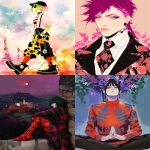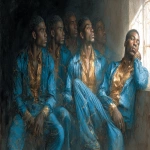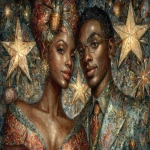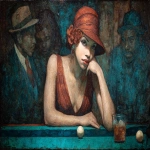Explore the Best AI Image Gallery

Quantum Leap for Creativity: Exploring the Impact of Quantum Computing on Art and Design
The realm of creativity is poised for a radical transformation with the advent of quantum computing. This groundbreaking technology, harnessing the principles of quantum mechanics, promises to revolutionize artistic expression, design processes, and the very nature of creative endeavors. While still in its nascent stages, quantum computing has already begun to spark imaginations and inspire innovative applications within the creative industry.
Quantum-Powered Artistic Expression
Imagine generating intricate fractal patterns, evolving digital sculptures that respond to real-time emotions, or composing symphonies with algorithms inspired by the complexities of the human brain. Quantum computing empowers artists to explore uncharted territories of creativity, pushing the boundaries of whats visually and aurally imaginable.
- Generative Art on Steroids: Quantum algorithms can analyze vast datasets of artistic styles, historical trends, and even individual preferences to generate truly unique and innovative artworks. Imagine personalized paintings or music compositions crafted specifically for your taste.
- Interactive and Evolving Creations: Quantum-powered simulations can create dynamic art installations that respond to audience interaction, environmental stimuli, or even the collective consciousness of viewers, blurring the lines between observer and participant.
- Enhanced Design Tools: Architects, fashion designers, and product developers can leverage quantum computing to simulate complex geometries, optimize material properties, and create designs with unprecedented levels of detail and functionality.
Beyond Aesthetics: The Practical Impact
The influence of quantum computing extends far beyond artistic expression. It has the potential to revolutionize numerous aspects of the creative industry:
- Streamlined Design Processes: Quantum algorithms can accelerate prototyping, optimize material usage, and reduce development cycles, leading to faster time-to-market for creative products.
- Personalized Creative Experiences: Imagine tailoring educational content, interactive storytelling, or immersive entertainment experiences based on individual learning styles, preferences, and emotional responses.
- Democratization of Creativity: Quantum computing tools can empower individuals with limited technical expertise to participate in creative processes, fostering a more inclusive and diverse creative landscape.
Ethical Considerations: Navigating the Uncharted Territory
As with any transformative technology, quantum computing raises important ethical considerations that require careful consideration:
- Bias in Algorithms: Quantum algorithms trained on biased datasets could perpetuate existing societal inequalities or generate discriminatory creative outputs. Its crucial to ensure fairness and inclusivity in the development and deployment of these technologies.
- Ownership and Intellectual Property: The question of authorship and intellectual property rights becomes complex when creative works are generated by quantum algorithms. Establishing clear guidelines and legal frameworks is essential to navigate this evolving landscape.
- Accessibility and Equity: Ensuring equitable access to quantum computing resources and benefits for all individuals, regardless of their socioeconomic background or geographical location, is paramount to prevent further digital divides.
The Quantum Future of Creativity: A Glimpse Ahead
Quantum computing is poised to usher in a new era of creativity, one characterized by unprecedented possibilities and boundless imagination. As this technology continues to evolve, we can expect to see:
- Hybrid Creative Collaborations: Artists, designers, and quantum scientists will work together to push the boundaries of creative expression, blurring the lines between human ingenuity and computational power.
- Emergence of New Artistic Mediums: Quantum computing will give rise to entirely new forms of artistic expression, utilizing principles of superposition, entanglement, and quantum simulation to create experiences that defy traditional notions of art.
- Personalized Creative Ecosystems: Imagine tailored creative platforms that adapt to your individual preferences, learning styles, and artistic aspirations, empowering you to explore your creative potential in unprecedented ways.
The journey into the quantum future of creativity is just beginning. Its a path filled with both challenges and opportunities, demanding careful consideration of ethical implications while embracing the boundless potential for innovation and artistic exploration.


](https://images.ai-img.art/thumbnails/150/26c257403e31dee6746c78e38bceb7def6011d04664049ef156f64a1c5497d44.webp)
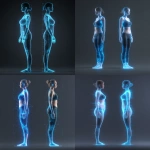

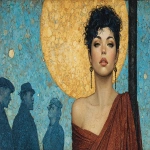
](https://images.ai-img.art/thumbnails/150/27af9f0bb8b7c7d503263849abaf3ede0e1acd1c8e0bdaba4700f845a674a0fc.webp)
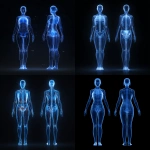




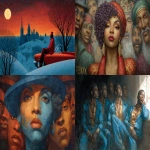
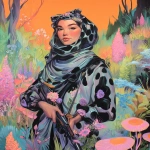
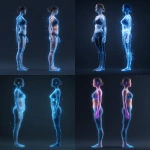

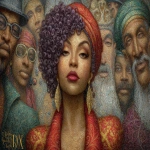
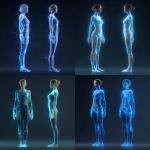

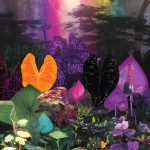
](https://images.ai-img.art/thumbnails/150/17edcb4f51c616e1278d716b510145bbc041556f71d621d2895f134892303315.webp)





](https://images.ai-img.art/thumbnails/150/3d91370d58b2f68867187ea56dc69c37d746fdadd44b521d87b1bf1df5d10f40.webp)
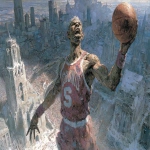


](https://images.ai-img.art/thumbnails/150/e0118b29fe5cfc2e6592413bab22001f9af64b4b69c6ec903940c927cde44197.webp)




